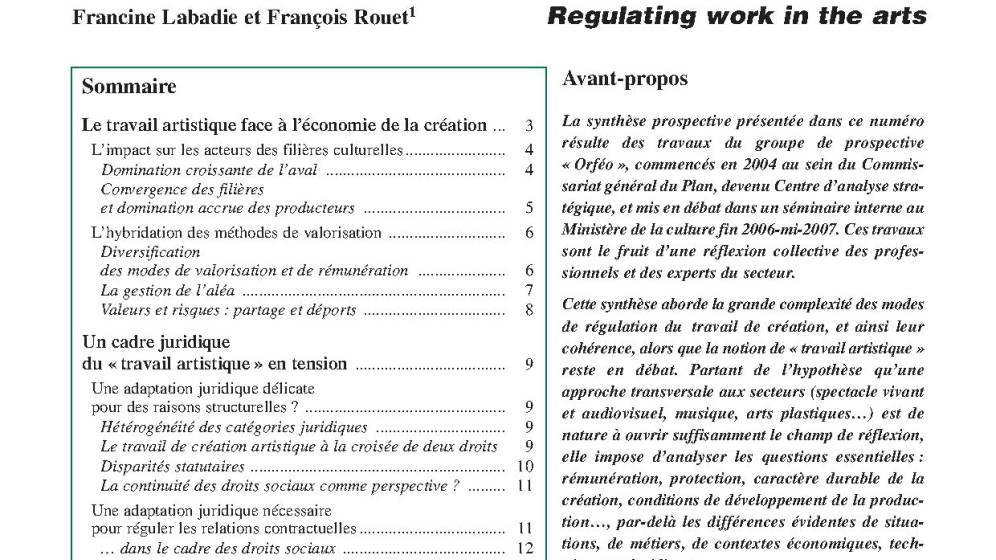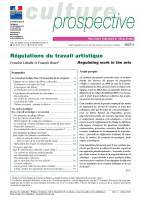The economics of artistic creation depend not only on the work done by artists but also on the artists’, authors’ and creators’ capacity for creative renewal. At present, however, the system by which the different branches of culture attribute value to artistic activity is being challenged by social, economic and technical changes. The changes, in addition to altering the structure of these branches, are modifying artists’ terms of remuneration and their outlook for taking risks. The new deal calls the juridical framework – consisting basically in labour legislation and literary and artistic property rights – into question.
Social law, labour legislation more particularly, no longer seems able to play its essentially protective role. The required balance between working freedom and work security has been upset by easier recourse to fixed-term contracts, as provided for by positive law. The use of unemployment insurance as an instrument does not satisfactorily solve the problem of cover for out-of-work periods. Welfare rights disparities between salaried and non-salaried artists, even though the latter are economically dependent, appear increasingly unjustified in view of the modern conditions in which professions are exercised. Continuity of welfare rights in a system of growing multi-activity is not assured.
Where literary and artistic property law is concerned, recourse to contracts where the balance of force among the parties is unequal leads to questioning the way in which the surrender of property rights is legally circumscribed as regards their nature, extent, duration and retribution for the ever more numerous forms of secondary exploitation. One sign of the limits of legal protection is the spreading habit of fixed fee payment, especially in the context of collective agreements.
It may be concluded that a need exists for new regulation and that collective and government action alike could contribute more to bringing it into being. At issue is a satisfactory response to a person’s need for security throughout her or his working career and to the expectation of fair pay, which takes account of creative activity in its entirety (labour and product), for contributing to artistic achievement.
Partager la page

